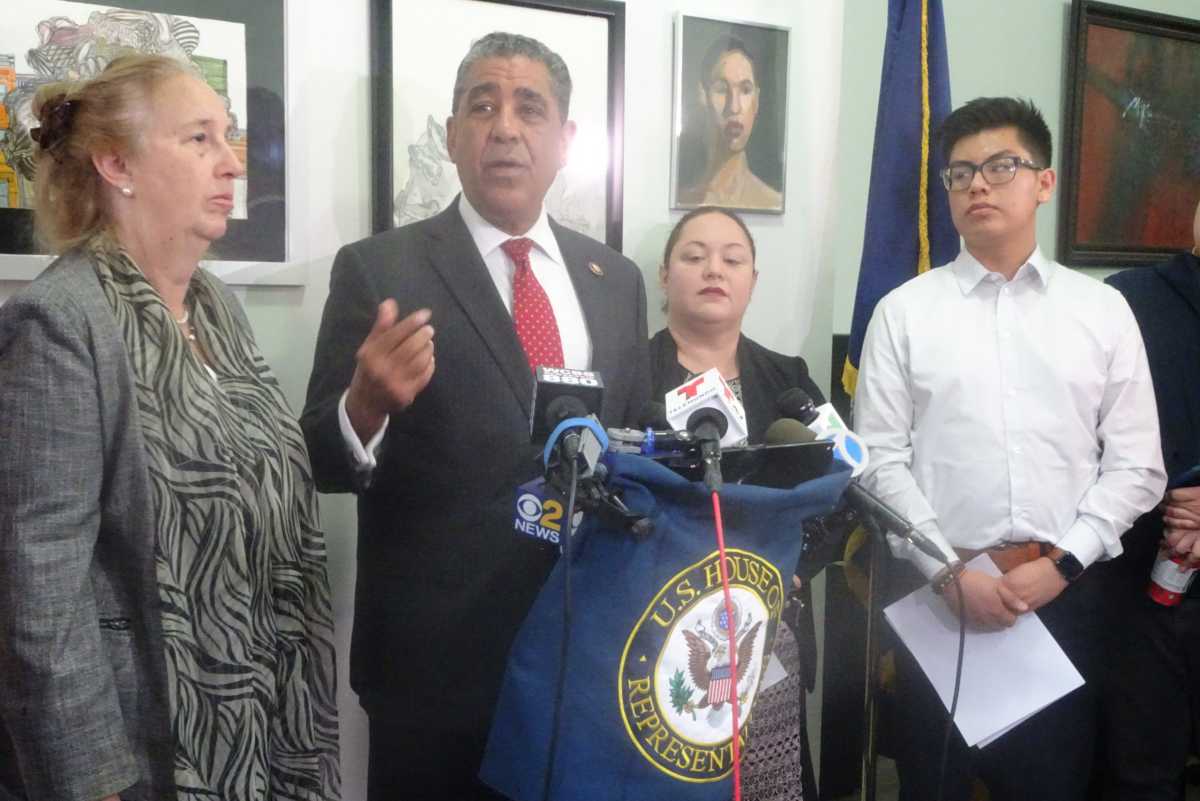Jose Lopez, 23, came to this country when he was just five years old. For the vast majority of his life, he had to live “in the shadows” as an undocumented immigrant, constantly facing the threat of deportation. This all changed when then-President Barack Obama (D) enacted the Deferred Action for Childhood Arrivals (DACA) program. The program entitled Lopez to a two-year reprieve from deportation and allowed him to receive a work permit. Soon afterward, he started working as an intern for Representative Adriano Espaillat (D-Washington Heights, Sugar Hill).
“Until that point, we weren’t able to get driver’s licenses, we weren’t able to go to school,” said Lopez. “It was really hard to just navigate everyday life and make a living. With DACA, I’ve been able to get a work permit, go to school, and pay for school. I was able to intern in Washington, D.C. and intern for Espaillat.”
But Lopez’s future could be in danger. Earlier this year, the Department of Homeland Security (DHS) announced its intention to phase out DACA. In response, the DHS received a class action lawsuit from the University of California, who alleged that the rescission of DACA violates the Administrative Procedure Act. If they lose the suit, Lopez could face the threat of deportation again.
Mr. Lopez told his story yesterday, at a press conference in support of the plaintiffs in the Supreme Court case DHS v. Regents of California. The case was scheduled for argument before the United States Supreme Court later that day.
The conference took place yesterday at 11 a.m. at Adriano Espaillat’s district office, 720 181st St. Espaillat was joined by Manhattan Borough President Gale A. Brewer (D), the Northern Manhattan Coalition for Immigrant Rights (NMCIR) and various immigrant advocates.
Espaillat proclaimed that Jose Lopez and his peers are true Americans and valuable contributors to our society – documentation status be damned.
“DACA recipients are very much Americans,” said Espaillat. “They are nurses, and teachers, and EMS workers. They’re in all sectors of our economy. They are small business owners, and home owners; they pay real estate taxes, and they pay sales taxes. The only exception is that they don’t have that card.”
Gale Brewer concurred, adding that she’s routinely impressed by the work ethic and proficiency that she sees from DACA students.
“Every year, I do about thirty graduations,” said Brewer. “Guess who the valedictorians are? They are often DACA students, because they are working so hard, and are so much a part of this community. [DACA] gives people who were brought here as children a chance to build a life outside the shadows. What kind of person says, ‘No, this has to go’? What kind of person says that people who grew up in this country, and are law-abiding members of society, should be kicked out?”
One reporter asked Espaillat about a recent tweet from President Donald Trump (R), which claimed that a significant portion of DACA recipients are “tough, hardened criminals”. Espaillat said that Trump’s claim was laughably untrue, for one simple reason; criminals cannot apply for DACA.
“DACA recipients voluntarily give their personal information to the government,” said Espaillat. “In addition to that, you cannot be convicted of a crime and be a DACA recipient. So that’s totally false, an outright lie trying to influence the decision of an independent body of government.”
Espaillat also took the time to rebut a separate claim that Trump made in the same tweet – that Obama had “no legal right” to sign the executive order to enact DACA in the first place.
“President Obama had every right to issue an executive order,” said Espaillat. “Executive orders are part of the presidency of the United States. The use of an executive order is, by no means, an illegal act. This is a legal action that President Obama took, and the Court will now render the decision today based on the merit of the arguments for and against it. I hope that the Court will be sensible in its approach to 800,000 young people who, in every way, are Americans.”








